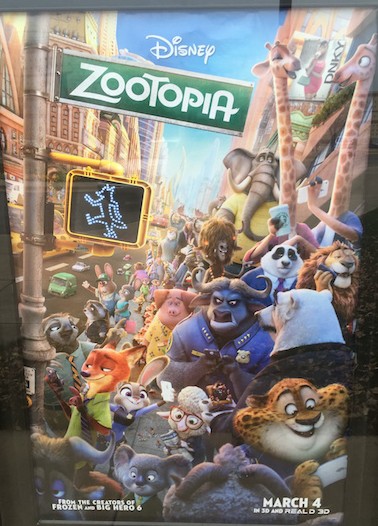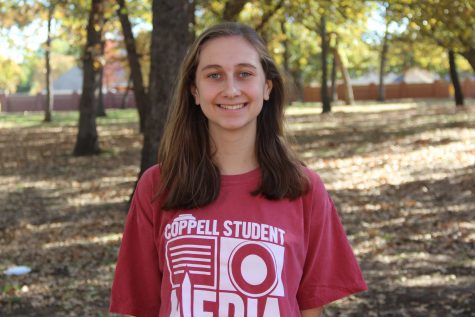Zootopia surprises with insightful message

March 7, 2016
Rarely do animated films carry deep, politically charged messages and bring laughs at the same time. Zootopia
accomplishes just that.
Centered around Judy Hopps, a bunny from a small town outside Zootopia who wants to be a policeman, the beginning of the film looked to be another story of an underdog who wanted to be more than what other people believed they could be.
Voiced by Ginnifer Goodwin, Hopps is upbeat and positive, a very lovable character. After being the first bunny to be a policeman, she is transferred to the inner city of Zootopia but only given a job as a meter maid. However, a missing person’s case causes her to make an alliance with a fox, Nick Wilde, voiced by Jason Bateman, who although seems to be a sly and disaffected animal, will prove his mettle of character.
The film contains a surprising amount of societal messages. Zootopia is a city with both predators and prey who happily coexist; or so Hopps believes. Stereotypes about the animals still exist.
When Hopps first meets Wilde she assumes he is a shifty character; an example of racial profiling. Hopps is given the most boring job on the force because she is an unimposing bunny; an example of discrimination.
Zootopia contains insightful messages tainted with humour that anyone can enjoy.
*Contains spoilers*
The most unique and politically relevant message is one that does not become clear until the second half of the movie. Deep into their investigation, Hopps and Wilde realize that predators are “turning savage.” Hopps then assumes that because of their biology, predators are reverting back to their primitive states. Wilde, a fox, is affronted by this betrayal and the two go their separate ways.
Back in her old home town, Hopps realizes that instead of their biology, predators are being turned by “night howlers” which are blue flowers. After hearing that her uncle went crazy after eating a night howler, Hopps realizes that prey can turn savage too.
Drawn any comparisons yet?
Hopps then returns to Zootopia and apologizes to Wilde for being “close minded” and the two set out to catch the person responsible for spreading the flower’s damaging effects. After finding what has an eerily similar look to a meth lab, Wilde and Hopps take the poisonous flower to the police and save the day.
There are several comparisons one could make, but the most obvious I see is the predators as being African Americans – they have been historically discriminated against and are the minority. The prey are the rest of society – the majority of the population and at first glance seem harmless.
Although not everything lines up completely (black people are not biologically predisposed to commit crimes, obviously), the general sense of the message was clear.
Hopps, a prey, realizes how close minded she was about accepting others and not realizing that prey can do wrong too. With racial tensions and the black lives matter movement, this seems like a reasonable connection to make. Whether or not systemic racism really does plague our society, it was surprising to see an animated film carry such a hard hitting message.
Although this message is very politically charged, the movie still contains light hearted fun and is quite enjoyable for anyone.









